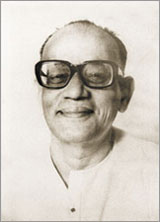A Quote by Bruce Chatwin
Richard Lee calculated that a Bushman child will be carried a distance of 4,900 miles before he begins to walk on his own. Since, during this rhythmic phase, he will be forever naming the contents of his territory, it is impossible he will not become a poet.
Related Quotes
Man will become immeasurably stronger, wiser, and subtler; his body will become more harmonious, his movements more rhythmic, his voice more musical. The forms of life will become dynamically dramatic. The average human type will rise to the heights of an Aristotle, a Goethe, or a Marx. And above these heights, new peaks will rise.
The boy will remain a son and never become a father. He will be forgotten by the crowd once his blood is rinsed clean from the ground; his sister will think of him but soon she will forget him, too. He will live on only in Han's memory, a child punished not for his own insincerity but someone else's disbelief.
It is as his own mind comes into contact with others that truth will begin to acquire value in the child's eyes and will consequently become a moral demand that can be made upon him. As long as the child remains egocentric, truth as such will fail to interest him and he will see no harm in transposing facts in accordance with his desires.
In Proverbs we read: 'He that winneth souls is wise.' If any man, women, or child by a godly life and example can win one soul to God, his life will not have been a failure. He will have outshone all the mighty men of his day, because he will have set a stream in motion that will flow on and on forever and ever.
What is to become of an independent statesman, one who will bow the knee to no idol, who will worship nothing as a divinity but truth, virtue, and his country? I will tell you; he will be regarded more by posterity than those who worship hounds and horses; and although he will not make his own fortune, he will make the fortune of his country.
Only now is the child finally divested of all that he has been. His origins are become remote as is his destiny and not again in all the world's turning will there be terrains so wild and barbarous to try whether the stuff of creation may be shaped to man's will or whether his own heart is not another kind of clay.




































